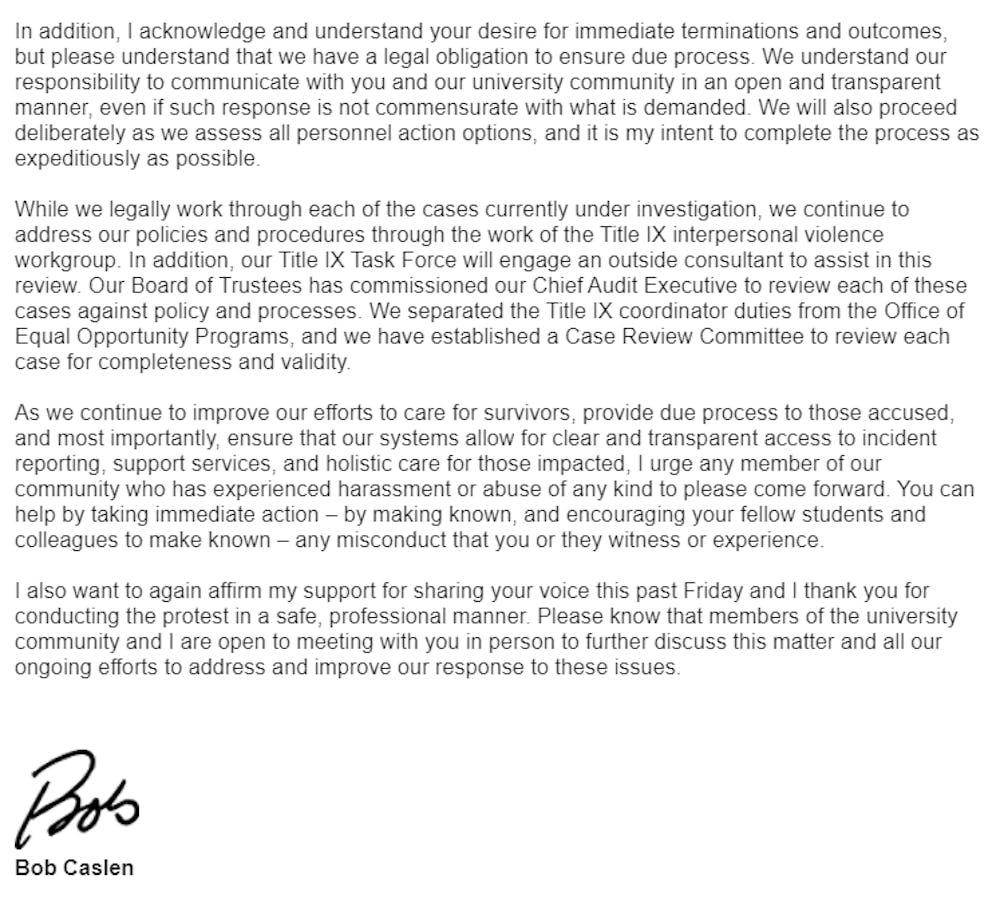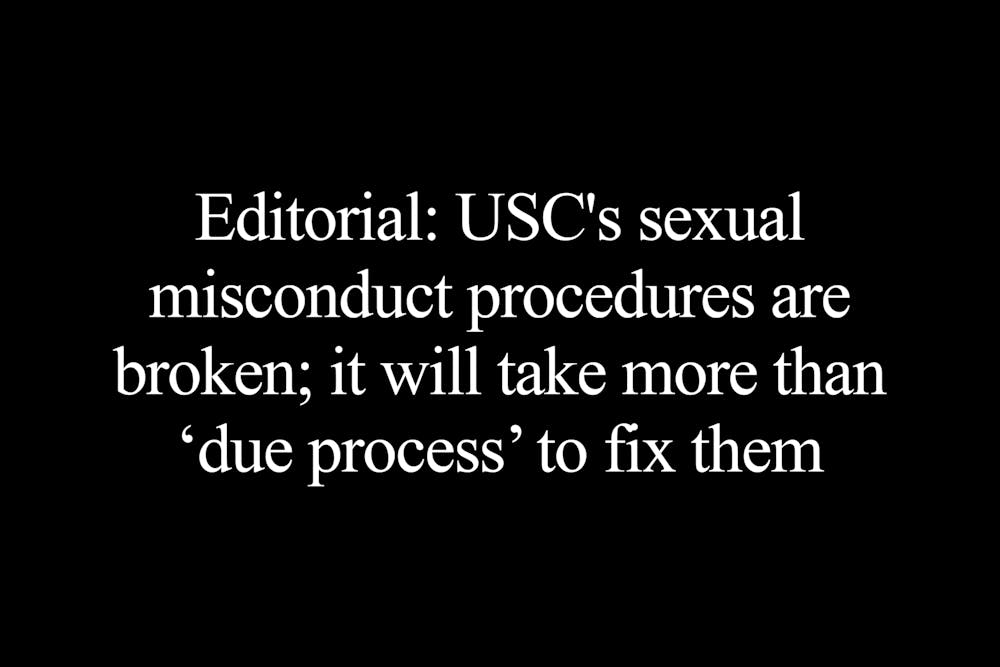USC has proven itself incapable of properly addressing and handling cases of sexual misconduct on campus. The administration must be more transparent in showing the public the steps it is now taking in its long-overdue attempt to address pending cases of sexual harassment.
Art professor David Voros, history professor David Snyder and Division of Information Technology employee Mike Dollar all have lawsuits filed against them by students, coworkers and instructors alleging sexual misconduct. One formal complaint and five witness statements were filed against theater professor Robert Richmond through USC's office of Equal Opportunities Programs (EOP).
Though Voros, Richmond and Synder have been removed from the classroom, Voros and Richmond still hold tenured positions and all remain on the university payroll. Dollar still holds his position at the university.
The Daily Gamecock supports and believes the victims of sexual violence. However, to pledge our support without acknowledging and condemning the systems that allowed for these cases to occur would be ignorant of the wider problems at play.
We stand by our commitment to objective reporting, but we must leverage our platform to hold the university accountable when it is complicit in wrongdoing — especially when that wrongdoing impacts those in our campus community.
USC has failed. It has created an environment in which members of our community fear sexual violence by faculty and staff who have authority over them.
Though USC is now seeking to address these problems, this damage cannot be undone. USC has established a precedent of concealing information and failing to act on student complaints. Last year, USC unlawfully withheld a report originating from the EOP concerning a case of sexual misconduct.
Following an extensive investigative report highlighting the ways in which USC mishandled cases of sexual harassment, university President Bob Caslen established a Title IX Task Force to conduct a review of the university’s handling of sexual harassment, sexual misconduct and interpersonal violence.

It should not have taken fire from the media for USC to take steps such as this to investigate cases that have years of evidence against them.
University spokesperson Jeff Stensland told The Daily Gamecock that members of the Title IX Task Force had to sign non-disclosure agreements. Stensland said this action was taken to keep protected information confidential. However, because of USC's history of illegally withholding information and its systemic inability to use due process to punish alleged abusers, USC must explicitly explain how the task force is handling these cases.
USC must change the structure under which these abuses occurred — fixing past wrongs is not enough. The university must ensure this kind of mass ineptitude never happens again. Only through specific and documented transparency about its process can USC begin to dismantle the systems that have allowed sexual harassment cases on campus to be swept under the rug.
Tenure has been used as a system of protecting abusers and preventing them from facing consequences. USC must redefine the language surrounding tenure, clarify its sexual harassment policy and reintroduce the presidential review, which allows people who filed complaints to the EOP to appeal their results.
The language used within the Equal Opportunity Complaint Processing Procedures Policy is vague enough to give USC the space to shirk the responsibility of firing those who violate sexual harassment policies. According to HR 1.39 Disciplinary Action and Termination for Cause and the Faculty Manual, it could take up to three instances of sexual harassment for a violator to be terminated.
Of course, these punishments work under the assumption that the university will not dismiss valid cases of sexual harassment. Because of USC’s history of enabling abusers, the Title IX Task Force must make the consequences of sexual harassment violations stricter.
Additionally, the reinstatement of the presidential review, which was removed in 2019, would allow victims to internally appeal cases they feel have been mishandled. Now, accusers can only appeal through state or federal agencies. USC must have a system of accountability that allows victims to question the results of their Title IX investigations.
Some of these cases of sexual misconduct have been public knowledge for years. The lack of urgency in addressing these issues is unacceptable. USC must be transparent in how it is solving this issue so that our community is no longer at risk. Additionally, USC must enforce its own rules and hold itself — and its staff — accountable.
It should not take protests, investigative reports and wide public outcry for USC to listen to members of our community who say they feel unsafe in the classroom.
We have waited long enough. A biased “due process” that prioritizes abusers over student safety is not adequate justice.
The Daily Gamecock will continue to hold the university accountable by reporting on these cases. If you have any information relating to these cases or similar information about sexual misconduct on campus, submit a tip.
The story doesn’t end here.


